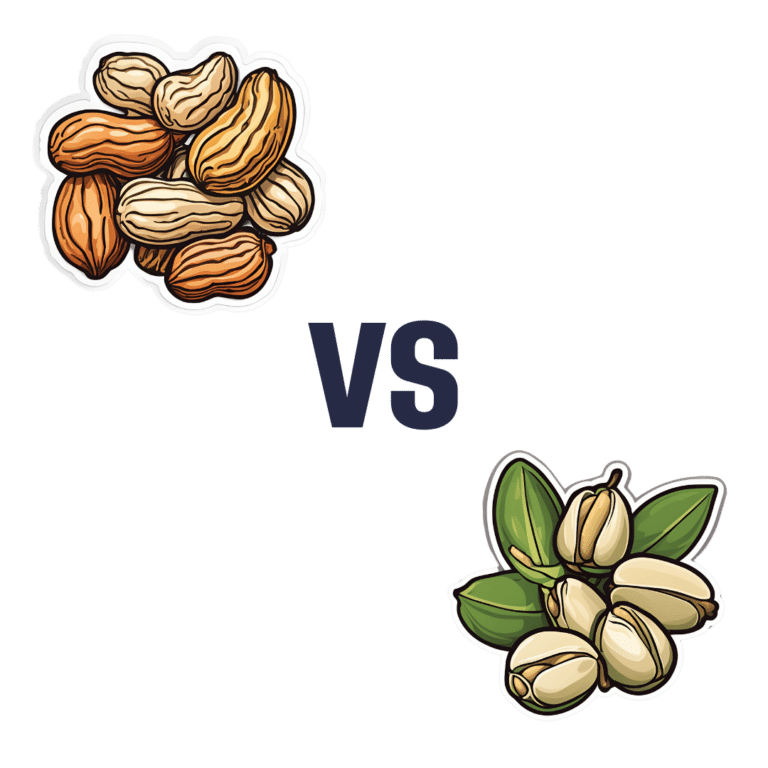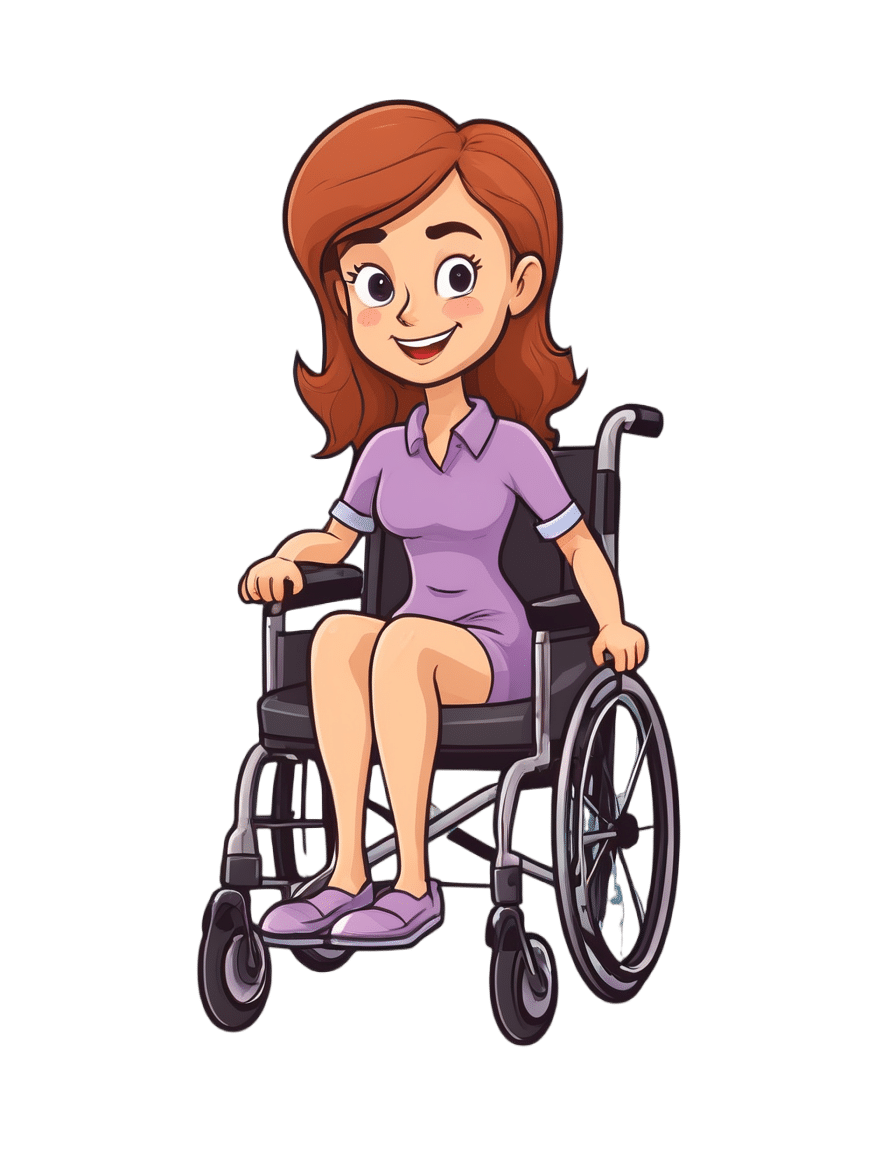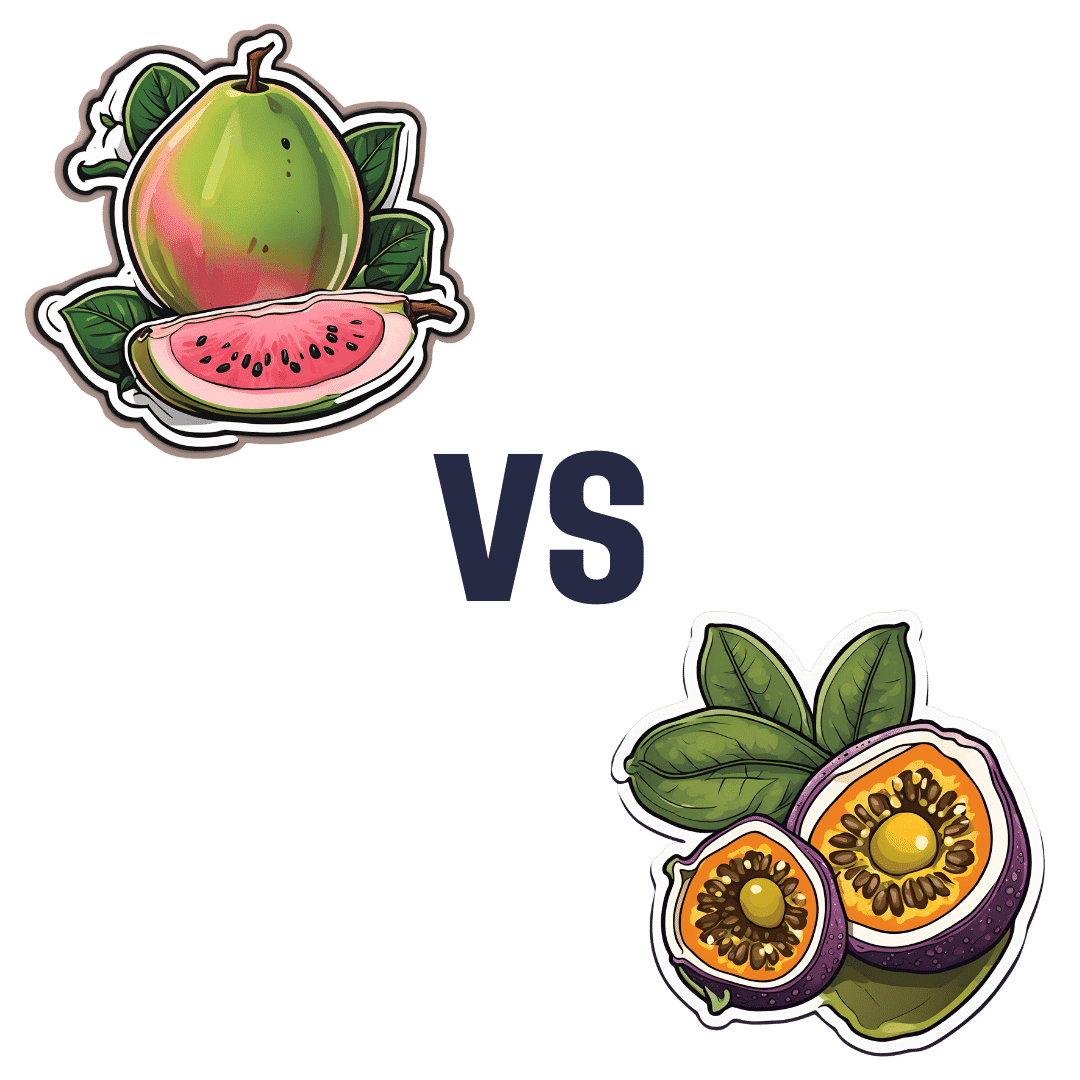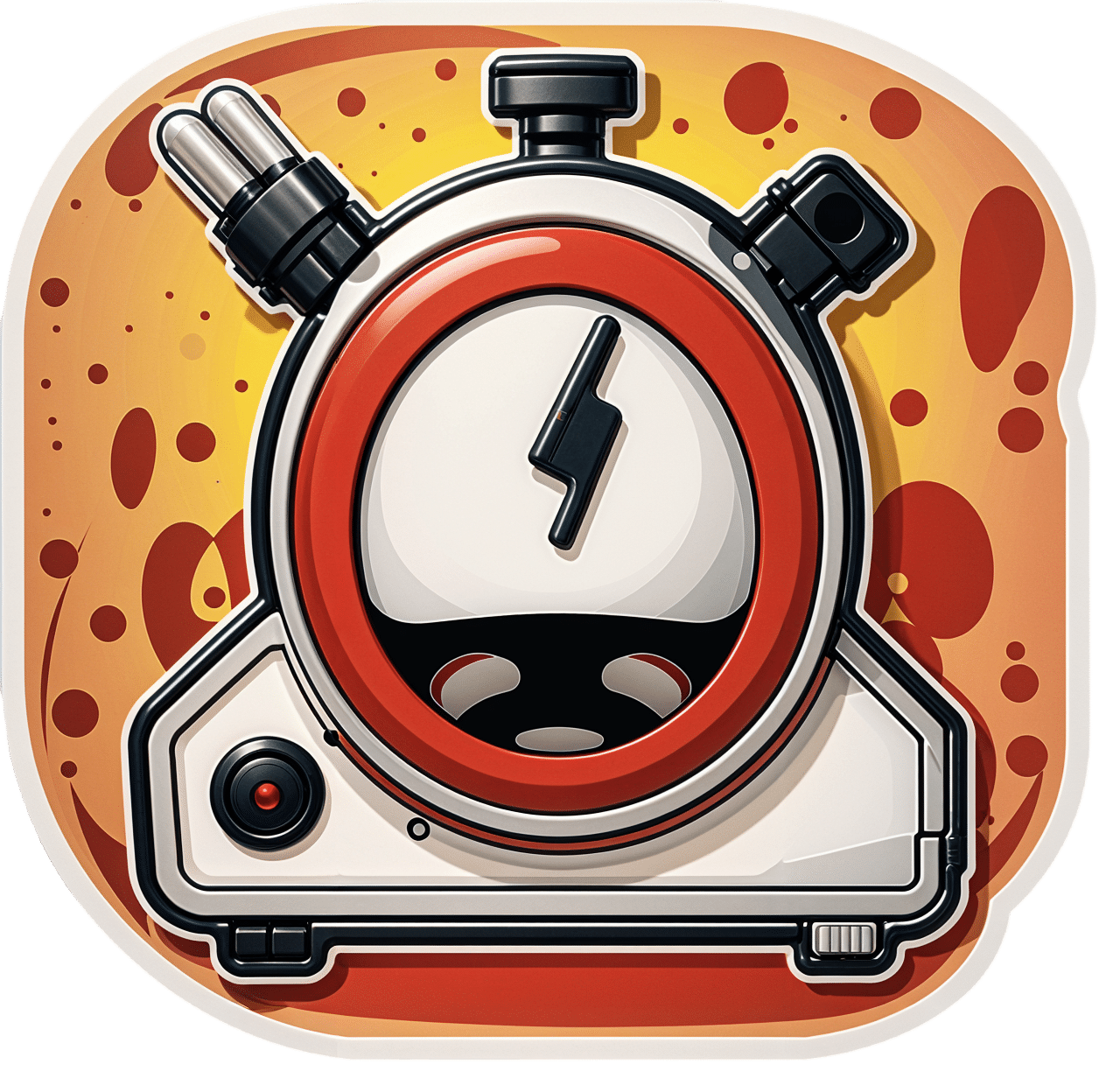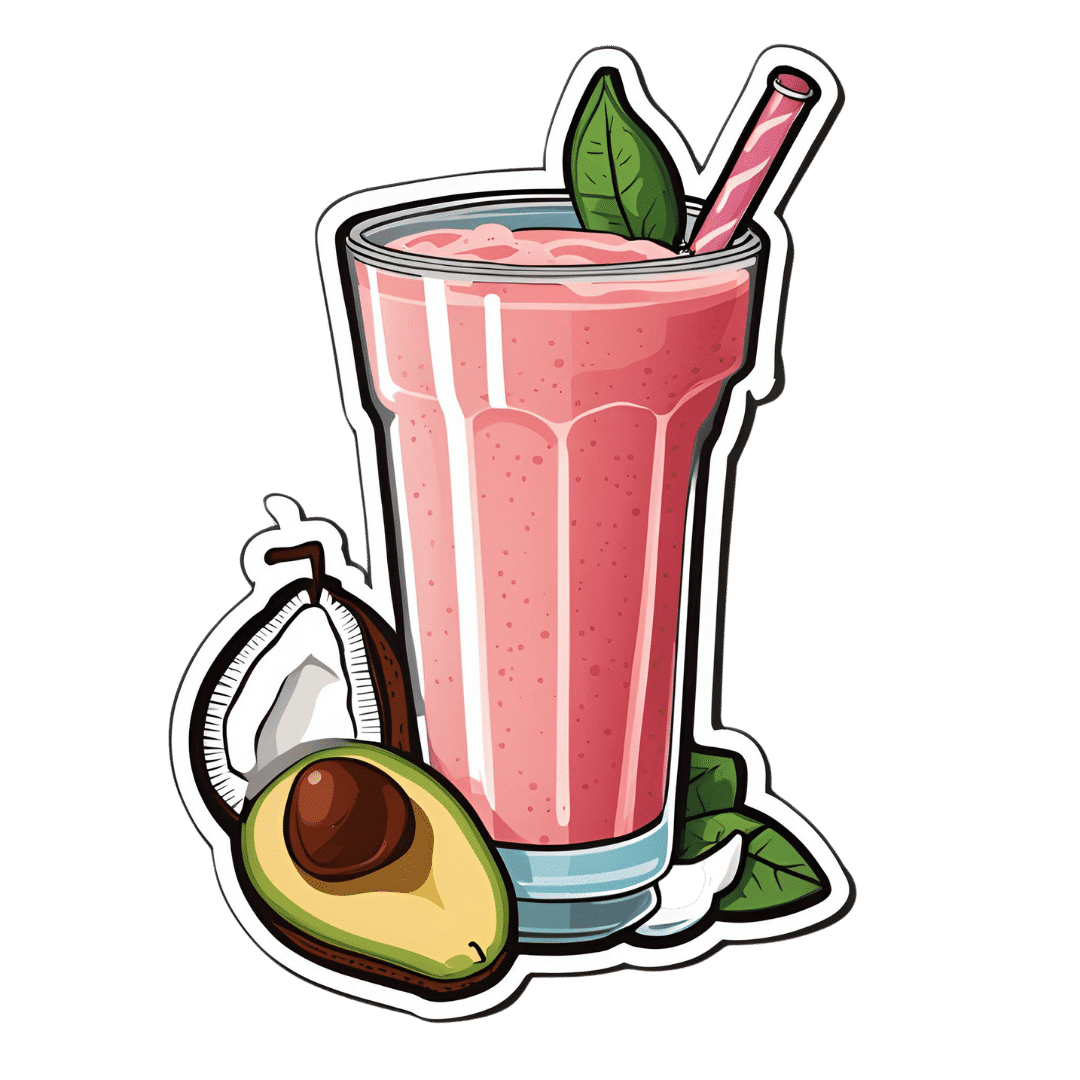
Dried Apricots vs Dried Prunes – Which is Healthier?
10almonds is reader-supported. We may, at no cost to you, receive a portion of sales if you purchase a product through a link in this article.
Our Verdict
When comparing dried apricots to dried prunes, we picked the prunes.
Why?
First, let’s talk hydration. We’ve described both of these as “dried”, but prunes are by default dried plums, usually partially rehydrated. So, for fairness, on the other side of things we’re also looking at dried apricots, partially rehydrated. Otherwise, it would look (mass for mass or volume for volume) like one is seriously outstripping the other even if some metric were actually equal, just because of water-weight in one and not the other.
Illustrative example: consider, for example, that the sugar in a bunch of grapes or a handful of raisins can be the same, not because they magically got more sugary, but because the water was dried out, so per mass and per volume, there’s more sugar, proportionally.
Back to dried apricots and dried prunes…
You’ll often see these two next to each other in the heath food store, which is why we’re comparing them here.
Of course, if it is practical, please by all means enjoy fresh apricots and fresh plums. But we know that life is not always convenient, fruits are not in season growing in abundance in our gardens all year round, and sometimes we’re stood in the aisle of a grocery store, weighing up the dried fruit options.
- Apricots are well-known for their zinc, potassium, and vitamin A.
- Prunes are well-known for their fiber.
But that’s not the whole story…
- Apricots outperform prunes for vitamin A, and also vitamins C and E.
- Prunes take first place for vitamins B1, B2, B3, B5, B6, and K, and also for minerals calcium, copper, iron, magnesium, manganese, phosphorus, potassium, sodium, and zinc.
- Prunes also have about 3x the fiber, which at the very least offsets the fact that they have 3x the sugar.
Once again, sugar in fruit is healthy (sugar in fruit juices is not*, though, so enjoy prunes rather than just prune juice, if you can) and can take its rightful place as providing a significant portion of our daily energy needs, if we let it.
*It’s the same sugar, just the manner of delivery changes what it does to our liver and our pancreas; see:
Which Sugars Are Healthier, And Which Are Just The Same?
In summary…
Dried apricots are great (fresh are even better), and yet prunes outperform them by most metrics on a like-for-like basis.
Prunes have, on balance, a lot more vitamins and minerals, as well as more fiber and energy.
Want to get some?
Your local supermarket probably has them, and if you prefer having them delivered to your door, then here’s an example product on Amazon
Enjoy!
Don’t Forget…
Did you arrive here from our newsletter? Don’t forget to return to the email to continue learning!
Recommended
Learn to Age Gracefully
Join the 98k+ American women taking control of their health & aging with our 100% free (and fun!) daily emails:
-
America’s Health System Isn’t Ready for the Surge of Seniors With Disabilities
10almonds is reader-supported. We may, at no cost to you, receive a portion of sales if you purchase a product through a link in this article.
The number of older adults with disabilities — difficulty with walking, seeing, hearing, memory, cognition, or performing daily tasks such as bathing or using the bathroom — will soar in the decades ahead, as baby boomers enter their 70s, 80s, and 90s.
But the health care system isn’t ready to address their needs.
That became painfully obvious during the covid-19 pandemic, when older adults with disabilities had trouble getting treatments and hundreds of thousands died. Now, the Department of Health and Human Services and the National Institutes of Health are targeting some failures that led to those problems.
One initiative strengthens access to medical treatments, equipment, and web-based programs for people with disabilities. The other recognizes that people with disabilities, including older adults, are a separate population with special health concerns that need more research and attention.
Lisa Iezzoni, 69, a professor at Harvard Medical School who has lived with multiple sclerosis since her early 20s and is widely considered the godmother of research on disability, called the developments “an important attempt to make health care more equitable for people with disabilities.”
“For too long, medical providers have failed to address change in society, changes in technology, and changes in the kind of assistance that people need,” she said.
Among Iezzoni’s notable findings published in recent years:
Most doctors are biased. In survey results published in 2021, 82% of physicians admitted they believed people with significant disabilities have a worse quality of life than those without impairments. Only 57% said they welcomed disabled patients.
“It’s shocking that so many physicians say they don’t want to care for these patients,” said Eric Campbell, a co-author of the study and professor of medicine at the University of Colorado.
While the findings apply to disabled people of all ages, a larger proportion of older adults live with disabilities than younger age groups. About one-third of people 65 and older — nearly 19 million seniors — have a disability, according to the Institute on Disability at the University of New Hampshire.
Doctors don’t understand their responsibilities. In 2022, Iezzoni, Campbell, and colleagues reported that 36% of physicians had little to no knowledge of their responsibilities under the 1990 Americans With Disabilities Act, indicating a concerning lack of training. The ADA requires medical practices to provide equal access to people with disabilities and accommodate disability-related needs.
Among the practical consequences: Few clinics have height-adjustable tables or mechanical lifts that enable people who are frail or use wheelchairs to receive thorough medical examinations. Only a small number have scales to weigh patients in wheelchairs. And most diagnostic imaging equipment can’t be used by people with serious mobility limitations.
Iezzoni has experienced these issues directly. She relies on a wheelchair and can’t transfer to a fixed-height exam table. She told me she hasn’t been weighed in years.
Among the medical consequences: People with disabilities receive less preventive care and suffer from poorer health than other people, as well as more coexisting medical conditions. Physicians too often rely on incomplete information in making recommendations. There are more barriers to treatment and patients are less satisfied with the care they do get.
Egregiously, during the pandemic, when crisis standards of care were developed, people with disabilities and older adults were deemed low priorities. These standards were meant to ration care, when necessary, given shortages of respirators and other potentially lifesaving interventions.
There’s no starker example of the deleterious confluence of bias against seniors and people with disabilities. Unfortunately, older adults with disabilities routinely encounter these twinned types of discrimination when seeking medical care.
Such discrimination would be explicitly banned under a rule proposed by HHS in September. For the first time in 50 years, it would update Section 504 of the Rehabilitation Act of 1973, a landmark statute that helped establish civil rights for people with disabilities.
The new rule sets specific, enforceable standards for accessible equipment, including exam tables, scales, and diagnostic equipment. And it requires that electronic medical records, medical apps, and websites be made usable for people with various impairments and prohibits treatment policies based on stereotypes about people with disabilities, such as covid-era crisis standards of care.
“This will make a really big difference to disabled people of all ages, especially older adults,” said Alison Barkoff, who heads the HHS Administration for Community Living. She expects the rule to be finalized this year, with provisions related to medical equipment going into effect in 2026. Medical providers will bear extra costs associated with compliance.
Also in September, NIH designated people with disabilities as a population with health disparities that deserves further attention. This makes a new funding stream available and “should spur data collection that allows us to look with greater precision at the barriers and structural issues that have held people with disabilities back,” said Bonnielin Swenor, director of the Johns Hopkins University Disability Health Research Center.
One important barrier for older adults: Unlike younger adults with disabilities, many seniors with impairments don’t identify themselves as disabled.
“Before my mom died in October 2019, she became blind from macular degeneration and deaf from hereditary hearing loss. But she would never say she was disabled,” Iezzoni said.
Similarly, older adults who can’t walk after a stroke or because of severe osteoarthritis generally think of themselves as having a medical condition, not a disability.
Meanwhile, seniors haven’t been well integrated into the disability rights movement, which has been led by young and middle-aged adults. They typically don’t join disability-oriented communities that offer support from people with similar experiences. And they don’t ask for accommodations they might be entitled to under the ADA or the 1973 Rehabilitation Act.
Many seniors don’t even realize they have rights under these laws, Swenor said. “We need to think more inclusively about people with disabilities and ensure that older adults are fully included at this really important moment of change.”
KFF Health News is a national newsroom that produces in-depth journalism about health issues and is one of the core operating programs at KFF—an independent source of health policy research, polling, and journalism. Learn more about KFF.
Subscribe to KFF Health News’ free Morning Briefing.
Share This Post
-
Guava vs Passion Fruit – Which is Healthier?
10almonds is reader-supported. We may, at no cost to you, receive a portion of sales if you purchase a product through a link in this article.
Our Verdict
When comparing guava to passion fruit, we picked the guava.
Why?
There aren’t many fruits that can beat passion fruit for nutritional density! And even in this case, it wasn’t completely so in every category:
In terms of macros, passion fruit has more carbs and fiber, the ratio of which give it the slightly lower glycemic index. Thus, a modest win for passion fruit in this category.
In the category of vitamins, guava has more of vitamins B1, B5, B6, B9, C, E, and K, while passion fruit has more of vitamins A, B2, and B3. A clear win for guava this time.
When it comes to minerals, it’s a little closer, but: guava has more calcium, copper, manganese, potassium, and zinc, while passion fruit has more iron, magnesium, and phosphorus. So, another win for guava.
Adding up the sections makes for guava winning the day, but by all means enjoy either or both; diversity is good!
Want to learn more?
You might like to read:
Fruit Is Healthy; Juice Isn’t (Here’s Why)
Enjoy!
Share This Post
-
These Signs Often Mean These Nutrient Deficiencies (Do You Have Any?)
10almonds is reader-supported. We may, at no cost to you, receive a portion of sales if you purchase a product through a link in this article.
These are not a necessary “if this then this” equation, but rather a “if this, then probably this”, and it’s a cue to try upping that thing in your diet, and if that doesn’t quickly fix it, get some tests done:
- White bumps on the skin: vitamin A, omega 3
- Craving sour foods: vitamin C
- Restless leg syndrome: iron, magnesium
- Cracked lips: vitamin B2
- Tingling hands and feet: vitamin B12
- Easy bruising: vitamin K and vitamin C
- Canker sores: vitamin B9 (folate), vitamin B12, iron
- Brittle or misshapen nails: vitamin B7 (biotin)
- Craving salty foods: sodium, potassium
- Prematurely gray hair: copper, vitamin B9 (folate), vitamin B12
- Dandruff: omega 3, zinc, vitamin B6
- Craving ice: iron
Dr. LeGrand Peterson has more to say about these though, as well as a visual guide to symptoms, so do check out the video:
Click Here If The Embedded Video Doesn’t Load Automatically!
Want to know more?
You might like this previous main feature about supplements vs nutrients from food
Do We Need Supplements, And Do They Work?
Enjoy!
Share This Post
Related Posts
-
5 Ways To Make Your Smoothie Blood Sugar Friendly (Avoid the Spike!)
10almonds is reader-supported. We may, at no cost to you, receive a portion of sales if you purchase a product through a link in this article.
At 10almonds, we are often saying “eat whole fruit; don’t drink your calories”. Whole fruit is great for blood sugars; fruit juices and many smoothies on the other hand, not so much. Especially juices, being near-completely or perhaps even completely stripped of fiber, but even smoothies have had a lot of the fiber broken down and are still a liquid, meaning they are very quickly and easily digestible, and thus their sugars (whatever carbs are in there) can just zip straight into your veins.
However, there are ways to mitigate this…
Slow it down
The theme here is “give the digestive process something else to do”; some things are more quickly and easily digestible than others, and if it’s working on breaking down some of the slower things, it’s not waving sugars straight on through; they have to wait their turn.
To that end, recommendations include:
- Full-fat Greek yogurt which provides both protein and fat, helping to slow down the absorption of sugar. Always choose unsweetened versions to avoid added sugars, though!
- Coconut milk (canned) which is low in sugar and carbs, high in fat. This helps reduce blood sugar spikes, as she found through personal experimentation too.
- Avocado which is rich in healthy fats that help stabilize blood sugar. As a bonus, it blends well into smoothies without affecting the taste much.
- Coconut oil which contains medium-chain triglycerides (MCTs) that are quickly absorbed for energy without involving glucose, promoting fat-burning and reducing blood sugar spikes.
- Collagen powder which is a protein that helps lower blood sugar spikes while also supporting muscle growth, skin, and joints.
For more on all of these, enjoy:
Click Here If The Embedded Video Doesn’t Load Automatically!
Want to learn more?
You might also like to read:
Take care!
Don’t Forget…
Did you arrive here from our newsletter? Don’t forget to return to the email to continue learning!
Learn to Age Gracefully
Join the 98k+ American women taking control of their health & aging with our 100% free (and fun!) daily emails:
-
Overdone It? How To Speed Up Recovery After Exercise
10almonds is reader-supported. We may, at no cost to you, receive a portion of sales if you purchase a product through a link in this article.
How To Speed Up Recovery After A Workout (According To Actual Science)
Has your enthusiasm ever been greater than your ability, when it comes to exercise?
Perhaps you leapt excitedly into a new kind of exercise, or maybe you made a reprise of something you used to do, and found out the hard way you’re not in the same condition you used to be?
If you’ve ever done an exercise session and then spent the next three days recovering, this one’s for you. And if you’ve never done that? Well, prevention is better than cure!
Post-exercise stretching probably won’t do much to help
If you like to stretch after a workout, great, don’t let us stop you. Stretching is, generally speaking, good.
But: don’t rely on it to hasten recovery. Here’s what scientists Afonso et al. had to say recently, after doing a big review of a lot of available data:
❝There wasn’t sufficient statistical evidence to reject the null hypothesis that stretching and passive recovery have equivalent influence on recovery.
Data is scarce, heterogeneous, and confidence in cumulative evidence is very low. Future research should address the limitations highlighted in our review, to allow for more informed recommendations.
For now, evidence-based recommendations on whether post-exercise stretching should be applied for the purposes of recovery should be avoided, as the (insufficient) data that is available does not support related claims.❞
…and breath! What a title.
Hot and Cold
Contrast bath therapy (alternating hot and cold, which notwithstanding the name, can also be done in a shower) can help reduce muscle soreness after workout, because of how the change in temperature stimulates vasodilation and vasoconstriction, reducing inflammation while speeding up healing:
Contrast Water Therapy and Exercise Induced Muscle Damage: A Systematic Review and Meta-Analysis
If doing this in the shower isn’t practical for you, and you (like most people) have only one bathtub, then cold is the way to go for the most evidence-based benefits:
Whole-Body Cryotherapy in Athletes: From Therapy to Stimulation. An Updated Review of the Literature
Eat protein whenever, carbs after
Eating protein before a workout can boost muscle protein synthesis. Be aware that even if you’re not bodybuilding, your body will still need to do cell replacement and repair, including in any muscle tissue that got damaged* during the workout
If you don’t like eating before a workout, eating protein after is fine too:
Pre- versus post-exercise protein intake has similar effects on muscular adaptations
*Note: muscle tissue is supposed to get damaged (slightly!) during many kinds of workout.
From lactic acid (that “burn” you feel when exercising) to microtears, the body’s post-workout job is to make the muscle stronger than before, and to do that, it needs you to have found the weak spots for it.
That’s what exercise-to-exhaustion does.
Eating carbs after a workout helps replace lost muscle glycogen.
For a lot more details on optimal nutrition timing in the context of exercise (carbs, proteins, micronutrients, different kinds of exercise, etc), check out this very clear guide:
International society of sports nutrition position stand: nutrient timing
Alcohol is not the post-workout carb you want
Shocking, right? But of course, it’s very common for casual sportspeople to hit the bar for a social drink after their activity of choice.
However, consuming alcohol after exercise doesn’t merely fail to help, it actively inhibits glycogen replacement and protein synthesis:
Also, if you’re tempted to take alcohol “to relax”, please be aware that alcohol only feels relaxing because of what it does to the brain; to the rest of the body, it is anything but, and also raises blood pressure and cortisol levels.
As to what to drink instead…
Hydrate, and consider creatine and tart cherry supplementation
Hydration is a no-brainer, but when you’re dehydrated, it’s easy to forget!
Creatine is a very well-studied supplement, that helps recovery from intense exercise:
Tart cherry juice has been found to reduce muscle damage, soreness, and inflammation after exercise:
Wondering where you can get tart cherry powder? We don’t sell it (or anything else), but here’s an example product on Amazon.
And of course, actually rest
That includes good sleep, please. Otherwise…
Effects of Sleep Deprivation on Acute Skeletal Muscle Recovery after Exercise
Rest well!
Don’t Forget…
Did you arrive here from our newsletter? Don’t forget to return to the email to continue learning!
Learn to Age Gracefully
Join the 98k+ American women taking control of their health & aging with our 100% free (and fun!) daily emails:
-
Pink Himalayan Salt: Health Facts
10almonds is reader-supported. We may, at no cost to you, receive a portion of sales if you purchase a product through a link in this article.
It’s Q&A Day at 10almonds!
Q: Great article about the health risks of salt to organs other than the heart! Is pink Himalayan sea salt, the pink kind, healthier?
Thank you! And, no, sorry. Any salt that is sodium chloride has the exact same effect because it’s chemically the same substance, even if impurities (however pretty) make it look different.
If you want a lower-sodium salt, we recommend the kind that says “low sodium” or “reduced sodium” or similar. Check the ingredients, it’ll probably be sodium chloride cut with potassium chloride. Potassium chloride is not only not a source of sodium, but also, it’s a source of potassium, which (unlike sodium) most of us could stand to get a little more of.
For your convenience: here’s an example on Amazon!
Bonus: you can get a reduced sodium version of pink Himalayan salt too!
Don’t Forget…
Did you arrive here from our newsletter? Don’t forget to return to the email to continue learning!
Learn to Age Gracefully
Join the 98k+ American women taking control of their health & aging with our 100% free (and fun!) daily emails:

